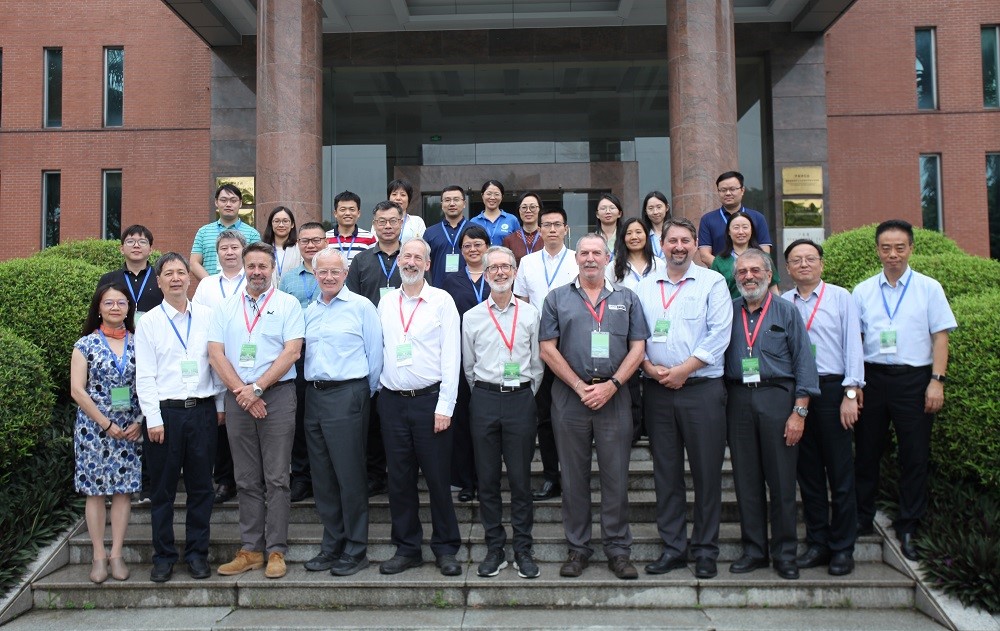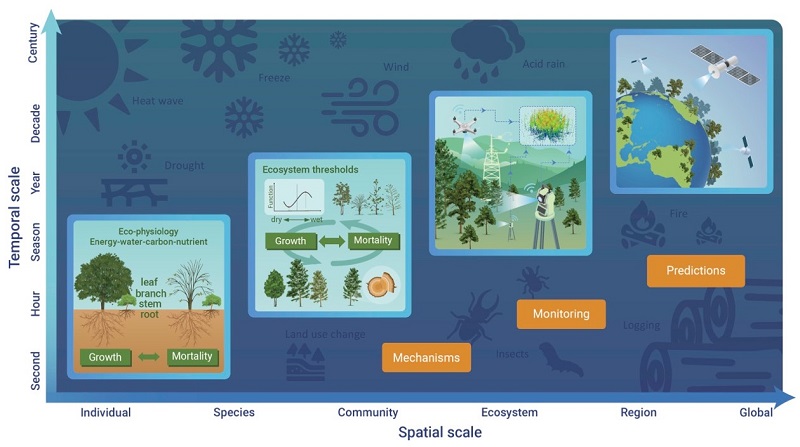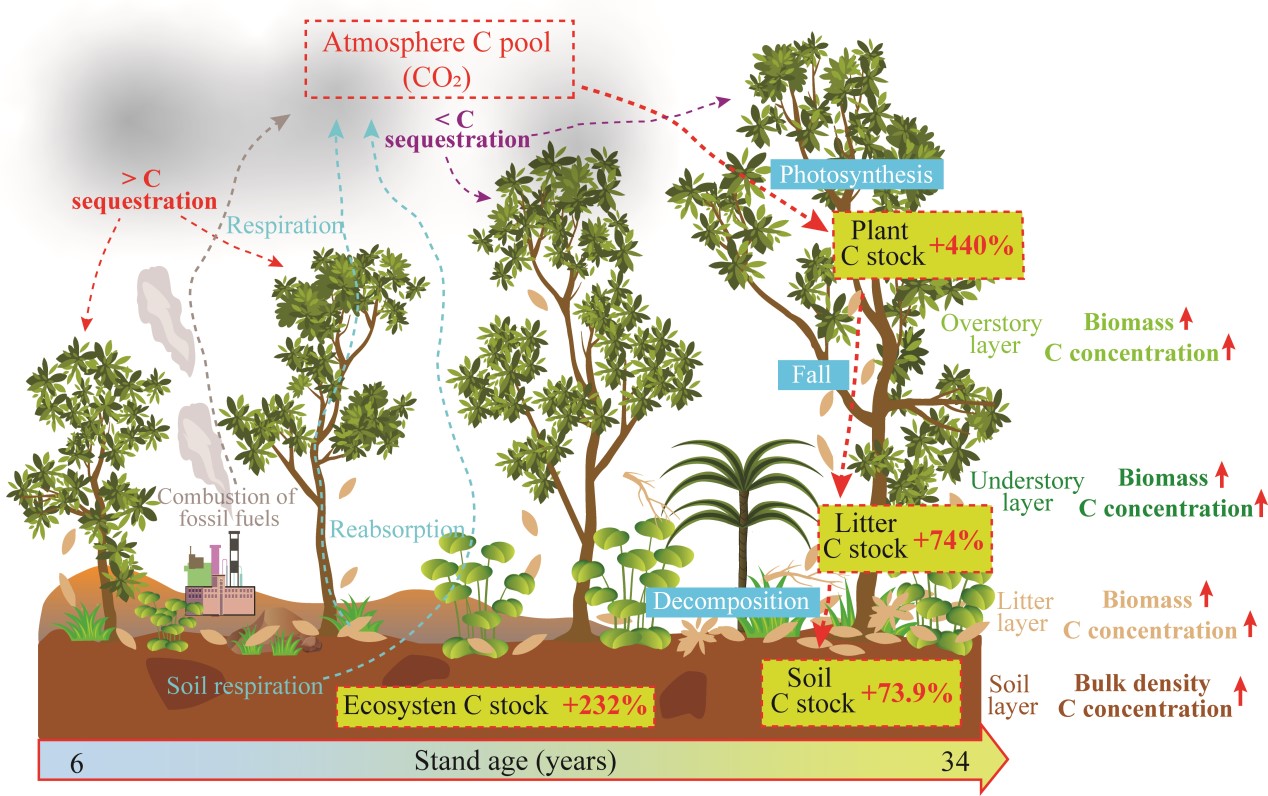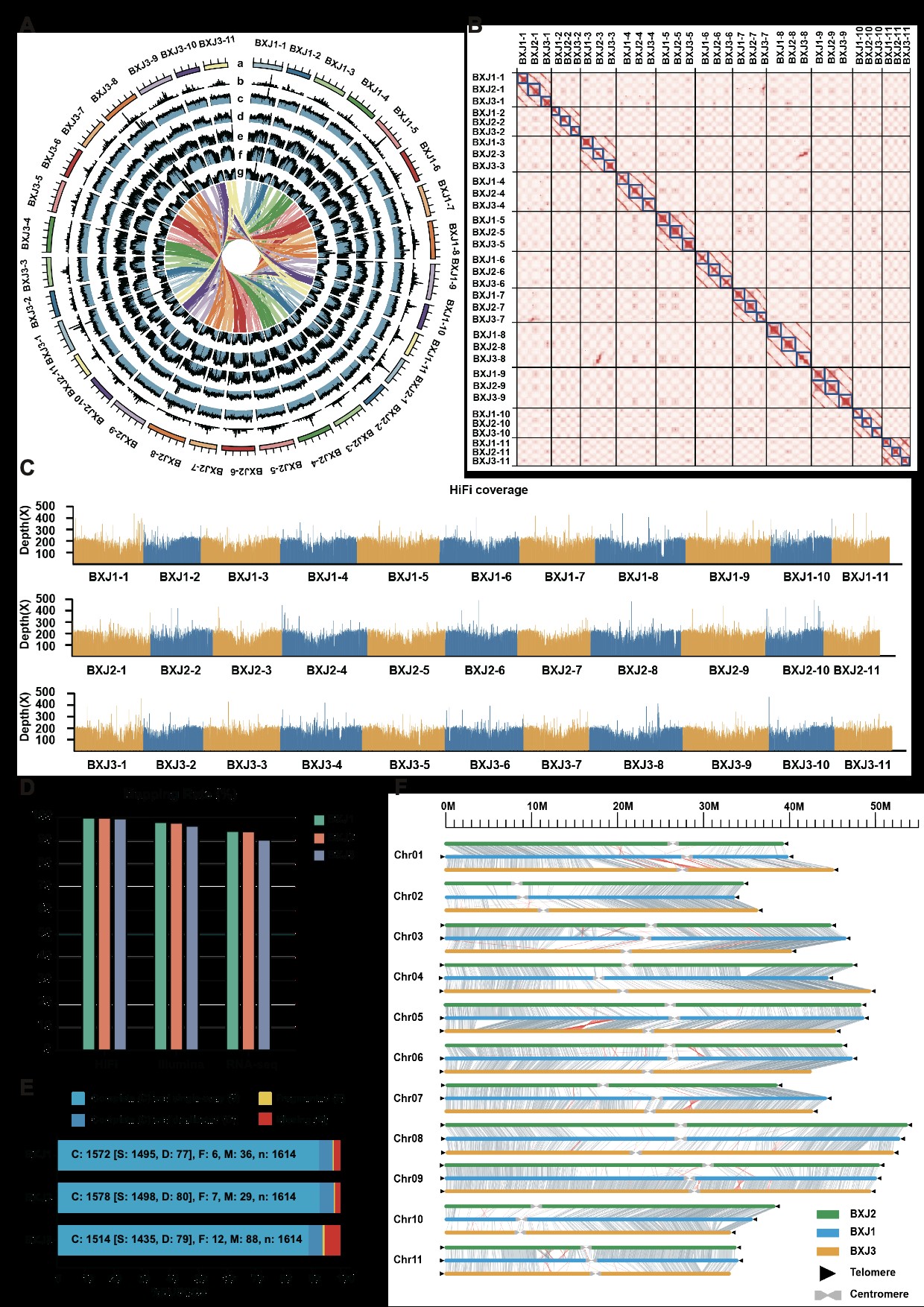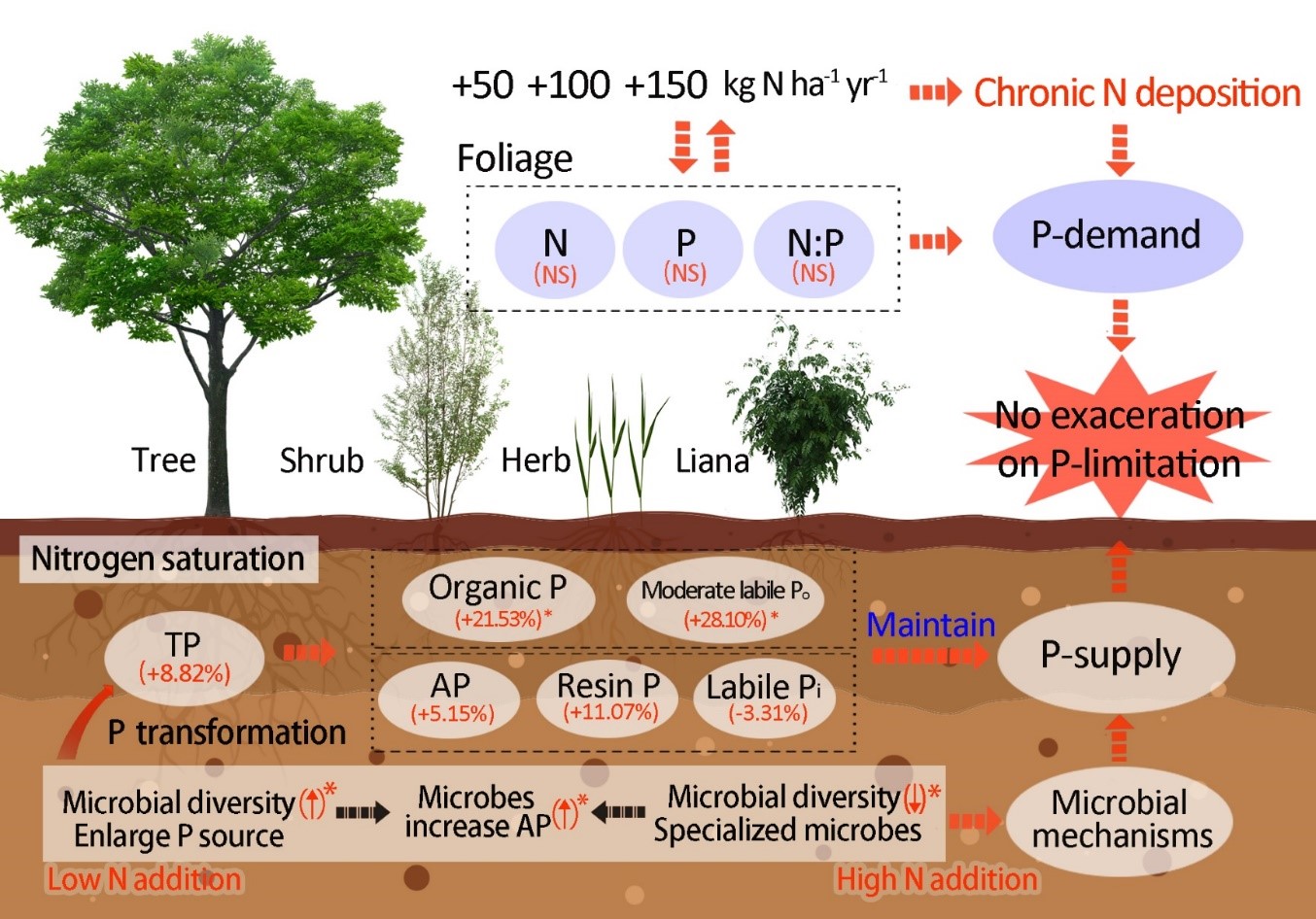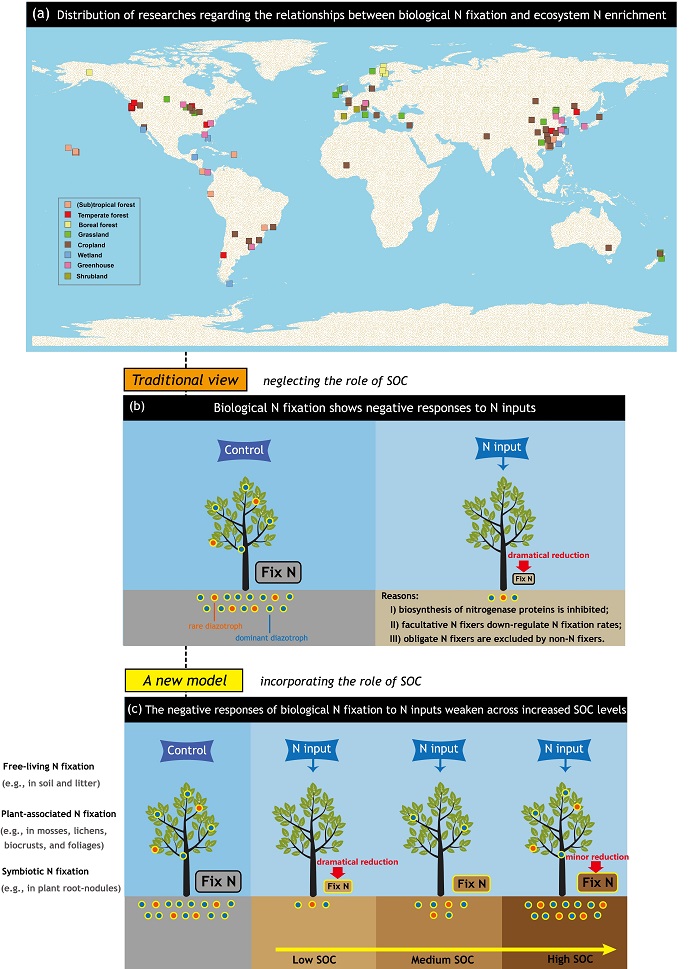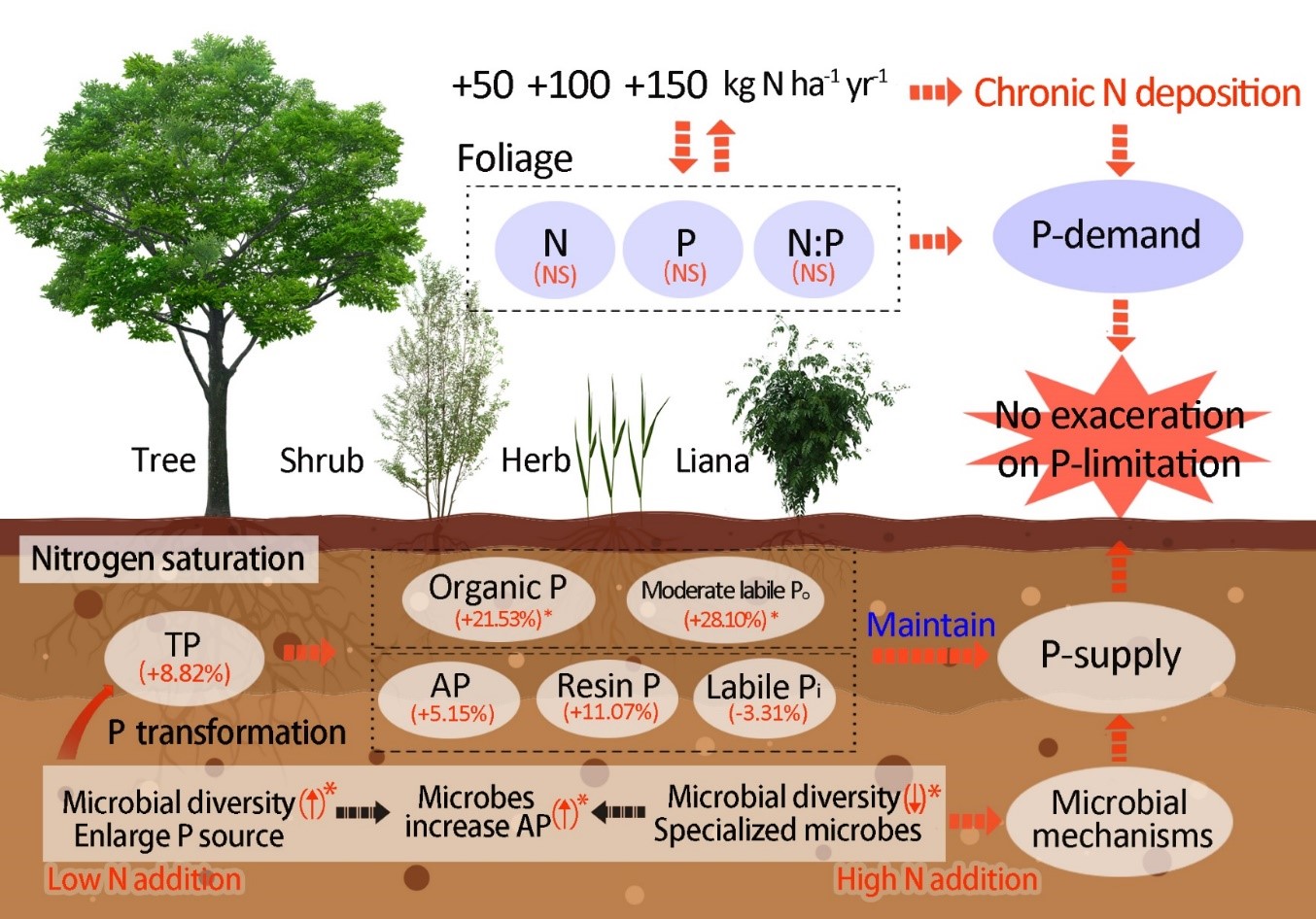News
-
2023-10-20SCBG organized an international consultation on the "SCNBG Construction Plan"South China National Botanical Garden ( SCNBG ) was approved by the State Council in May 2022 , unveiled in July 2022 , and started the " South China National Botanical Garden Construction Plan " ( referred as the " Construction Plan " ) in January.Expert group members visit the herbarium ? Expert group members visit the Conservatories ? The i... South China National Botanical Garden (SCNBG) was approved by the State Council in May 2022, unveiled in July 2022, and started the "South China National Botanical Garden Construction Plan" (referred as the "Construction Plan") in January 2023.Read More
According to the "Approval Procedure after the Establishment of the National Botanical Garden" iss... -
2023-09-15From tree to forest: how to understand multiple carbon sink constraints?Terrestrial ecosystems , mainly sequestrate carbon through tree growth , playing an important role in mitigating climate change .Of carbon sinks in Amazon forests is caused by drought-induced tree mortality , which in turn leads to a decrease in forest biomass .Mechanisms of forest carbon sinks to global change .Forest biomass can be significant... Forests are the largest carbon sinks among terrestrial ecosystems, mainly sequestrate carbon through tree growth, playing an important role in mitigating climate change. A recent study in Nature has found that the reduction of carbon sinks in Amazon forests is caused by drought-induced tree mortality, which in turn leads to a decrease in forest ...Read More
-
2023-08-24Carbon storage capacity of Castanopsis hystrix plantations at different stand– ages in South ChinaHave drawn huge attention for investigation .Impacts of different stand ages on the C storage capacity of C . hystrix plantations ecosystems , Chinese researchers measured biomass and C content in trees , understory , litter , and soil components from field measurements at different stand ages .Storage capacity in the 6 – , 10 – , 15 – , 25 ... The establishment of forest plantations is an excellent silvicultural alternative to improve atmospheric carbon (C) sequestration for climate change mitigation. In recent years, the importance of forest growth and C dynamics at different stand ages have drawn huge attention for investigation. Castanopsis hystrix (C. hystrix) is an indigenous tre...Read More
-
2023-08-21The first telomere-to-telomere haplotype-resolved reference genome of triploid bananaThe article “ Telomere-to-telomere haplotype-resolved reference genome reveals subgenome divergence and disease resistance in triploid Cavendish banana ” has been published in Horticulture Research . This work was supported by the National Natural Science Foundation of China and the Strategic Priority Research Program of Chinese Academy of Sci...Read More
Banana is one of the most important crops of the world. The demand for cultivated bananas continues to grow; however, their production is greatly affected by a complex of biotic and abiotic stresses. For instance, banana yields are severely threatened by the disease fusarium wilt, which is caused by the fungus Fusarium oxysporum f. sp. cube... -
2023-07-06A molecular module in gibberellin signaling-mediated floweringGenes in plants remains unclear .Figure . A proposed model illustrating how the DELLA-BRM-NF-YC module regulates GA signaling-mediated flowering . The timing of floral induction is tightly controlled by environmental cues and intrinsic signals. The critical role of gibberellin (GA) in this process has been extensively studied in the past decades. DELLA proteins serve as the central regulatory hubs of GA signaling. The mechanism of GA-dependent transcription involves the recruitment of DELL...Read More
-
2023-06-30Long-term nitrogen addition does not increase phosphorus demand of plants in a nitrogen-saturated tropical forestIn recent decades , nitrogen deposition has exerted a substantial impact on biogeochemical cycles.Subtropical evergreen broad-leafed forest in Dinghushan Nature Reserve , Guangdong , we explored the impacts of 18 - year nitrogen additions on leaf.A schematic diagram showing the influences of 18 - year ? N addition on phosphorus fractions and tr...Read More
In recent decades, nitrogen deposition has exerted a substantial impact on biogeochemical cycles of terrestrial ecosystems across the globe. While phosphorus is a vital macronutrient necessary for all organisms, it assumes a crucial role in physiological processes associated with protein and genetic material synthesis, energy transfer, memb... -
2023-06-07Negative responses of terrestrial nitrogen fixation to nitrogen addition weaken across increased soil organic carbon levelsRates while obligate N fixers are excluded as soil N becomes rich .However , this view contradicts the observation that N fixation does not decline in many.Of the Total Environment , with the linked paper below : https : / / www . sciencedirect . com/science/article/pii/S0048969.The traditional view versus a novel model regarding the relationshi...Read More
It is generally thought that biological nitrogen (N) fixation is energetically expensive and facultative N fixers reduce N fixation rates while obligate N fixers are excluded as soil N becomes rich. However, this view contradicts the observation that N fixation does not decline in many terrestrial ecosystems under N enrichment. Based on met... -
2023-06-05Long-term nitrogen addition does not increase phosphorus demand of plants in a nitrogen-saturated tropical forestIn recent decades , nitrogen deposition has exerted a substantial impact on biogeochemical cycles.Subtropical evergreen broad-leafed forest in Dinghushan Nature Reserve , Guangdong , we explored the impacts of 18 - year nitrogen additions on leaf phosphorus.Cycling and vegetation productivity in nitrogen-rich forest ecosystems , particularly con... In recent decades, nitrogen deposition has exerted a substantial impact on biogeochemical cycles of terrestrial ecosystems across the globe. While phosphorus is a vital macronutrient necessary for all organisms, it assumes a crucial role in physiological processes associated with protein and genetic material synthesis, energy transfer, membrane ...Read More
